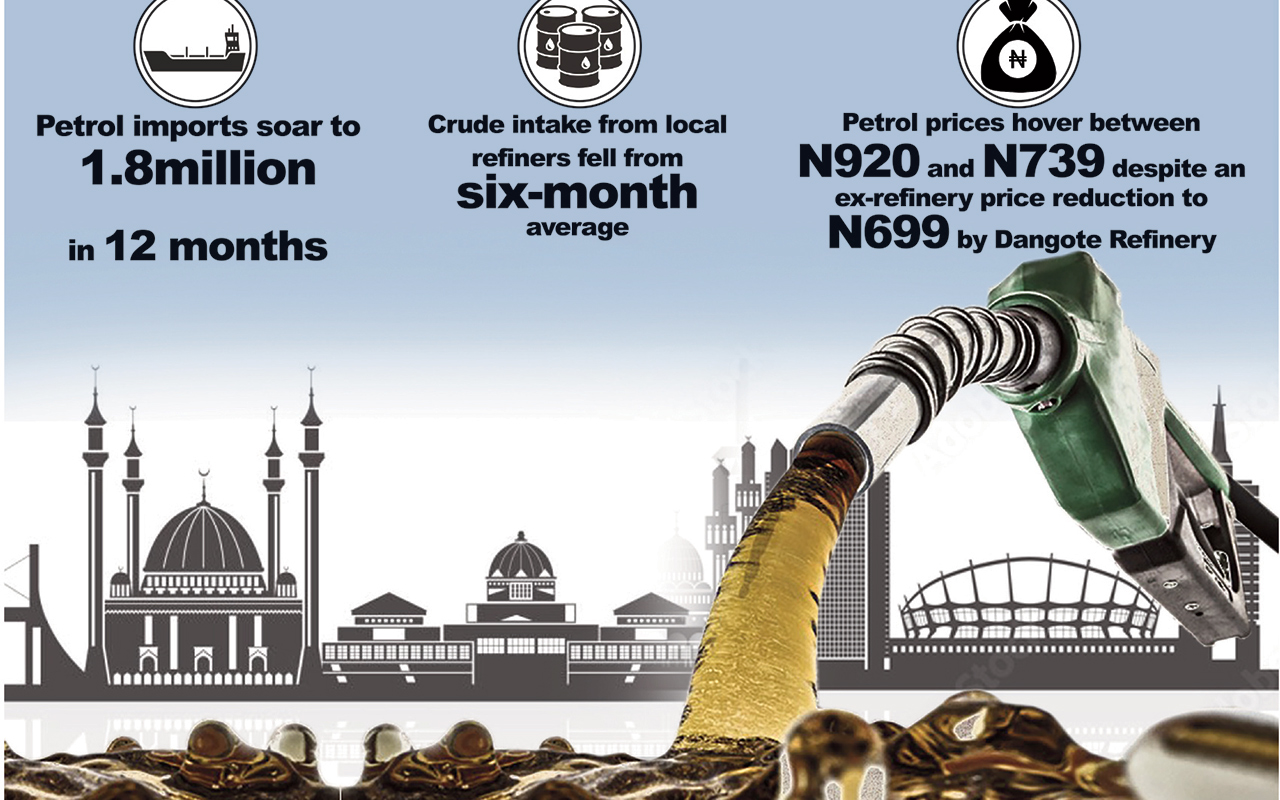
The Franco-Nigerian Chamber of Commerce and Industry (FNCCI) has said the issues around oil theft and other circumstances surrounding oil production need to be addressed if the country can meet its energy needs at a sustainable cost.
The chamber also said that to be able to achieve this, there must be local crude supply to the Port Harcourt and Dangote refineries respectively, thereby eliminating the price effect from FX harmonisation.
In a statement by the chamber in response to the Nigerian Bureau of Statistics (NBS) latest Gross Domestic Report (GDP) for Q2 2024, it stated that the GDP of any nation is a reflection of the size and an indicator of how the economy is performing. The figures allow policymakers to have a feel of the economy and take necessary actions.
The chamber stated that from the non-oil sector, there was a noticeable decline in the contribution from the agricultural sector year-on-year. The sector contributed 18.54% to Nigeria’s GDP, down from the 21.7% witnessed in Q2 2023.
“We believe this might be connected with the insecurities in the northern part of the country and the low yield from climate change,” the chamber said.
FNCCI said the nominal GDP growth of the manufacturing sector for Q2 2024 stood at 1.91% (year-on-year). This represents 27.99 percentage points lower than the figure recorded in the corresponding period of 2023, and 6.30 percentage points lower than the preceding quarter.
This decline, according to the chamber, can be attributed to the rising energy costs both from grid energy and alternative sources, as well as the FX rate for the import of raw materials. We feel more focus and support should be given to the manufacturing sector as it is key for economic development.
It stated that Nigeria’s current oil production for Q2 2024 experienced a quarter-on-quarter decline (1.41 mbpd from 1.57 mbpd). The issues around oil theft and other circumstances surrounding oil production need to be addressed if the country can meet her energy needs at a sustainable cost. To achieve this, there must be local crude supply to the Port Harcourt and Dangote refineries respectively, thereby eliminating the price effect from FX harmonisation.
Meanwhile, the latest GDP Report from the NBS shows that the Nigerian economy grew by 3.19% in the second quarter of 2024 (Q2 2024). The Q4 2024 growth rate increased by 0.68 percentage points from the 2.51% growth rate recorded in Q2 2023 and increased by 0.21 percentage points relative to the 2.98% in Q1 2024.
In nominal terms, the GDP stood at N60,930,000.58 million. This performance is higher compared to the second quarter of 2023, which recorded an aggregate GDP of N52,103,927.13 million.
The Nigerian oil sector in Q2 2024 recorded an average daily oil production of 1.41 million barrels per day (mbpd), higher than the daily average production of 1.22 mbpd recorded in the same quarter of 2023 by 0.19 mbpd and lower than the first quarter of 2024 production volume of 1.57 mbpd by 0.16 mbpd.
The oil sector contributed 5.70% to the total real GDP in Q2 2024, up from the figure recorded in the corresponding period of 2023, which was 5.34%, but down from the preceding quarter, where it contributed 6.38%.
The oil sector recorded a real growth of 10.15% (year-on-year) in Q2 2024, indicating an increase of 23.58 percentage points relative to the rate recorded in the corresponding quarter of 2023, which stood at -13.43%.
The non-oil sector grew by 2.80% in Q2 2024. This rate was lower by 0.78 percentage points compared to the rate recorded in the same quarter of 2023, which was 3.58%, and relatively the same as the 2.80% recorded in the first quarter of 2024. This sector was driven mainly by Financial and Insurance (Financial Institutions); Information and Communication (Telecommunications); Agriculture (Crop production); Trade; and Manufacturing (Food, Beverage, and Tobacco), accounting for positive GDP growth.
The non-oil sector contributed 94.30% to the nation’s GDP in the second quarter of 2024, lower than the share recorded in the second quarter of 2023, which was 94.66%, and higher than the first quarter of 2024 recorded as 93.62%.






